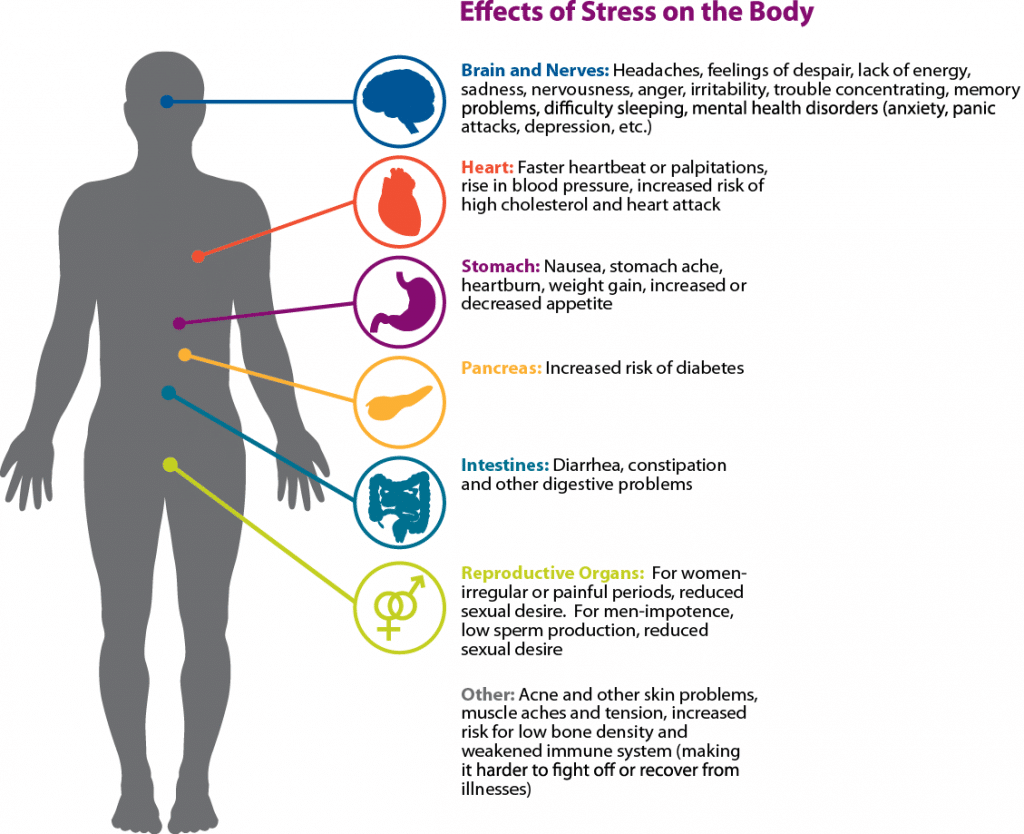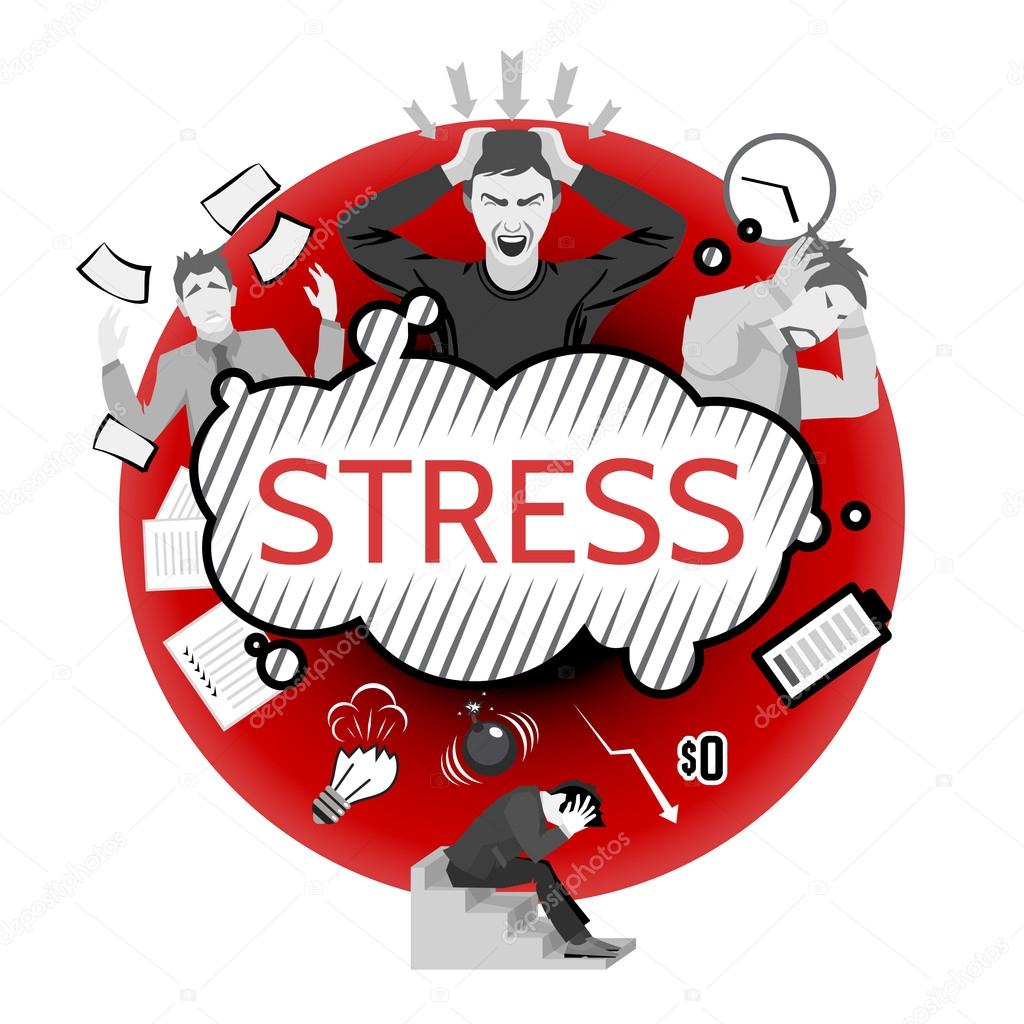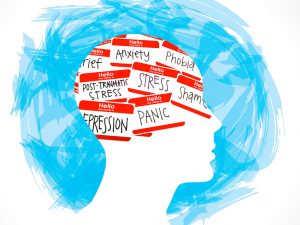Miscellaneous, New Health Axis
List of diseases caused by Negative Emotions & Stress

Stress and negative emotions is an unavoidable truth and can influence people in an assortment of ways. Sooner or later throughout everyday life, each encounters some level of stress; a few people experience stress more frequently than others and some experience issues managing stress. Stress isn’t an illness itself, but it can cause you to become unwell. For instance , if stress lasts for an extended time it can cause anxiety and depression. Anxiety and depression can lead to many medical issues and health problems and disorders like heart attack, and bipolar disorder which is explained below. Stress can be shown from any circumstance or belief that makes an individual encounter dissatisfaction, outrage, and apprehension. For the last decade diseases caused due to stress have become very common in metro cities in India.
Stress can have various serious implications on health, expanding the danger of cardiovascular infection and compounding ailments, for example, asthma, diabetes, and hypertension. Stress is unavoidable, however, figuring out how to oversee it successfully is critical.
Health Problems & Diseases & Caused due to Stress
- Headaches: Tension headaches can be triggered and intensified by stress.
- Increased Depression: Stress in its chronic form can wear you emotionally
- Heartburn: The production of stomach acid is increased by stress that further leads to heartburn. Health problems caused by stress like heartburn have increased in metropolitan areas and have increased at a rapid rate since 2013. Click Here
- Insomnia: Stress can lead to sleep disorders that can lead to insomnia. For the last decade it has become one of the stress related disorders which has affected all ages. Click Here
- Rapid Breathing: The muscle that helps you breathe tense up when you’re stressed, and can leave you short of breath. This is also very common among stress induced disorders.
- Weakened Immune System: Your immune systems defense when you’re under long term stress which could leave you vulnerable to infections
Risk of Heart Attack: Over time, with increased stress level one can have high blood pressure and increased heart rate that can damage your arteries that can lead to heart attack. - Fertility Problem: Reproductive system is interfered with stress in both men and women making it harder to conceive.
- Low Sex Drive: Stress and fatigue can take a toll on your libido

Image Souce – Environmental Health Project
How stress and diseases are related?
Stress is classified as short-term or long-term stress and both can prompt an assortment of manifestations. Yet, constant stress can negatively affect the body over the long haul and have long-lasting health impacts. Some common signs of stress are listed below:
- Changes in mood
- Decreased sex drive
- Clammy or sweaty palms
- Diarrhea
- Difficulty in sleeping
- Feeling anxious and Deprived
- Digestive problems
- Dizziness
- Frequent sickness
- Grinding teeth
- Headaches
- Low energy Level
- Physical aches and pains
- Muscle tension, especially in the neck and shoulders
- Fast heartbeat
- Trembling
How to identify stress

Stress is not always easy to recognize, but there are some ways to identify some signs that you might be experiencing in your daily life. Sometimes stress can come from an obvious source, but sometimes even small daily stresses from work, school, family, and friends can take a toll on your mind and body.
Stress isn’t in every case simple to perceive, however, there are a few different ways to distinguish a few signs that you may be encountering a lot of pressing factor. Sometimes stress can emerge out of a conspicuous source, however sometimes even little everyday stresses from work, school, family, and companions can negatively affect your brain and body.
If you figure stress may be influencing you, there are a couple of things you can look for:
Mental signs, for example, trouble concentrating, stressing, nervousness, and inconvenience recalling.
Enthusiastic signs, for example, irritating, aggravated, moody, or disappointed.
Actual signs, for example, hypertension, changes in weight, regular colds or infections, and changes in the period and moxie,
Social signs, for example, helpless self-care, not possessing energy for the things you appreciate, or depending on medications and liquor to adapt.



How to deal with stress ?

If you have stress manifestations, finding a way to deal with your stress can have numerous health advantages. Investigate stress management procedures, for example,
- Getting ordinary physical work.
- Rehearsing unwinding methods, for example, profound breathing.
- contemplation, yoga, or back rub/massage.
- Keeping an awareness of what’s funny.
- Spending energy with loved ones
- Saving time for your hobbies, for example, perusing a book or tuning in to music
- Over the counter stress management medications

